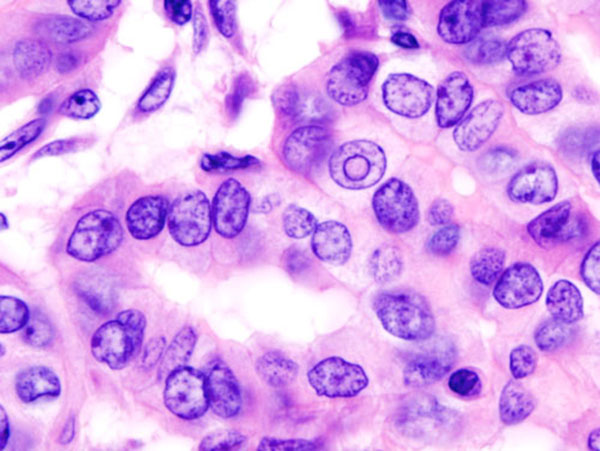A New Treatment Option for Advanced Thyroid Cancer
The FDA approved a tyrosine kinase inhibitor for certain patients with thyroid cancer.
The U.S. Food and Drug Administration (FDA) approved cabozantinib (Cabometyx) for adult and pediatric patients 12 years of age and older with advanced differentiated thyroid cancer (DTC) that has progressed after treatment with vascular endothelial growth factor receptor (VEGFR)-targeted therapy and who are ineligible or have not responded to radioactive iodine therapy.
DTC is the most common type of thyroid cancer. Patients with DTC have a good prognosis after the standard treatment options, which include surgery and ablation with radioactive iodine. However, a minority of patients are refractory to radioactive iodine or become resistant over time. Treatments called tyrosine kinase inhibitors (TKIs) targeting VEGFR have been approved for the treatment of radioactive iodine-refractory DTC, but some patients eventually develop resistance to these agents.

Cabozantinib is an oral medication approved previously for the treatment of certain types of kidney cancer and liver cancer. It is a TKI that blocks specific proteins to help keep cancer cells from growing. It is also an angiogenesis inhibitor that aims to prevent the development of blood vessels supporting tumor growth.
The efficacy of cabozantinib for treating advanced thyroid cancer in this patient population was evaluated in a randomized, double-blind, multicenter clinical trial in which patients whose disease had progressed after prior VEGFR-targeted therapy and were ineligible or refractory to radioactive iodine received either cabozantinib or a placebo. The median progression-free survival time in the first 100 randomized patients was 11.0 months for patients who received cabozantinib, compared with 1.9 months for patients who received a placebo. The overall response rate was 18 percent for patients who received cabozantinib versus 0 percent for those who received a placebo.
It was estimated that 44,280 people would be diagnosed with thyroid cancer in the U.S. in 2021.
The FDA decision was rendered on September 17, 2021.
